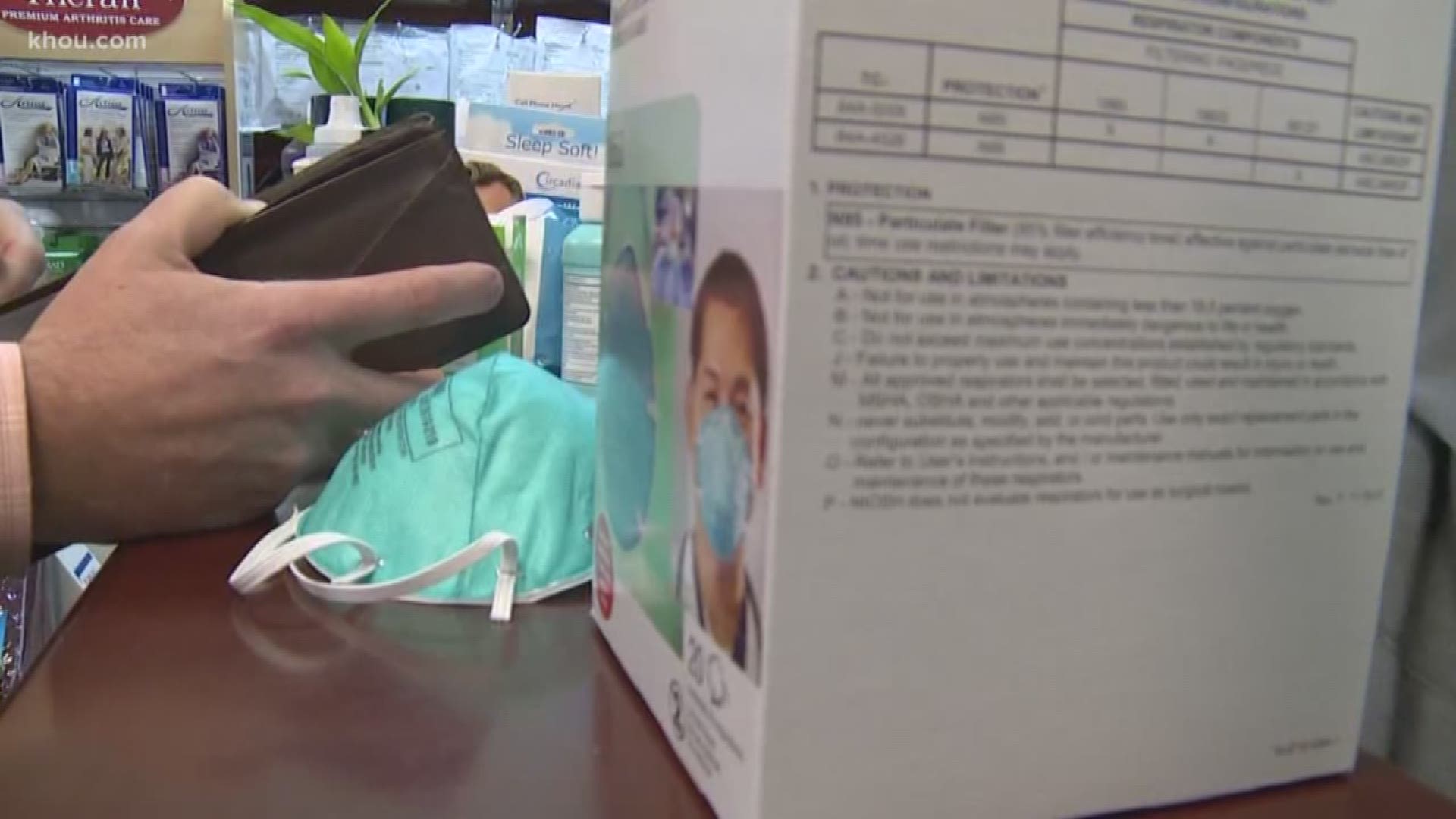HOUSTON — President Donald Trump said he's working to get much-needed personal protective equipment to health care workers.
The federal government is shuffling about 5 million N95 masks from the U.S. Department of Defense over to the U.S. Department of Health and Human Services, which will then distribute the masks. The federal government is also ordering another 1 million masks, which are needed to to protect medical workers from contracting COVID-19, a strain of the coronavirus that spreads between humans and has been declared a global pandemic.
As the federal government puts in that rush order, the city of Houston is sharing what supply it has.
"We’ve sent over, to the Texas Medical Center, 10,000 N-95 masks from the inventory of the city of Houston," said Mayor Sylvester Turner.
"While we don’t have numbers on what that looks like, we know that there is a supply shortage," said Harris County Health Director Dr. Umair Shah.
Shah said he's busy balancing demand with local supply.
"And while that’s happening, and we’re working through local solutions for this, we’re also hopeful that federal and state assets get here so that we’re actually able to move forward," he said.
The World Health Organization and the Centers for Disease Control & Prevention acknowledge that the mask shortage is due, in large part, to panic buying across the country.
Last month, KHOU 11 reported on long lines outside of medical supply stores.
Healthy people were paying $25 for an N95 mask that normally sells for $4.
"Save the masks for somebody who’s sick, or for the healthcare providers who are taking care of them," said emergency room nurse Kevin McFarlane.
It's why Methodist Hospital CEO Marc Boom says mask supplies are being closely monitored.
"Every hospital is looking at that. Securing whatever they can secure," said Boom. "Making sure they preserve what they have. Using it appropriately and not using it in ways they don’t need to."
Health care workers across the U.S. are forced to weigh their options because there currently isn't enough protective equipment to go around.
Coronavirus symptoms
The symptoms of coronavirus can be similar to the flu or a bad cold. Symptoms include a fever, cough and shortness of breath, according to the Centers for Disease Control.
Most healthy people will have mild symptoms. A study of more than 72,000 patients by the Centers for Disease Control in China showed 80 percent of the cases there were mild.
But infections can cause pneumonia, severe acute respiratory syndrome, kidney failure and even death, according to the World Health Organization. Older people with underlying health conditions are most at risk.
The CDC believes symptoms may appear anywhere from two to 14 days after being exposed.
Human coronaviruses are usually spread through...
- The air by coughing or sneezing
- Close personal contact, such as touching or shaking hands
- Touching an object or surface with the virus on it, then touching your mouth, nose or eyes before washing your hands.
Help stop the spread of coronavirus
- Stay home when you are sick.
- Eat and sleep separately from your family members
- Use different utensils and dishes
- Cover your cough or sneeze with your arm, not your hand.
- If you use a tissue, throw it in the trash.
Lower your risk
- Wash your hands often with soap and water for at least 20 seconds. If soap and water are not available, use an alcohol-based hand sanitizer.
- Avoid touching your eyes, nose, and mouth with unwashed hands.
- Avoid close contact with people who are sick.
- Clean and disinfect frequently touched objects and surfaces.
- If you are 60 or over and have an underlying health condition such as cardiovascular disease, diabetes or respiratory illnesses like asthma or COPD, the World Health Organization advises you to try to avoid crowds or places where you might interact with people who are sick.
Get complete coverage of the coronavirus by texting 'FACTS' to 713-526-1111.

